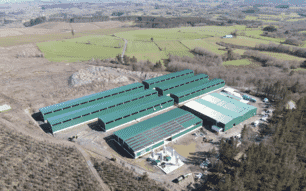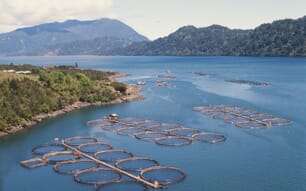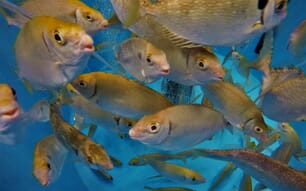Some of the big topics covered at the event included: fish escapes, fishmeal/fish oil replacements, animal welfare and disease treatment/prevention.
Tim Dempster and David Jackson, both working for the
Prevent Escapes project talked about what the main causes of escaped fish are and how they can be minimised.
Many researchers said that farmed fish can compete with wild fish and highlighted the problems related to breeding between the two.
Carolina de Haro Dominguez won an award for her research into the use of flies, Lucilia sericata, as an alternative protein source in gilthead sea bream diets.
Cristobal Cobo, Institute of Freshwater Ecology and Inland Fisheries, Germany, looked at the effects of low frequency ultrasound (LFU) immersion vaccines on rainbow trout. He identified that LFU is effective at increasing permeability of the skin and gills, therefore allowing more efficient particle uptake. However, he noted that low LFS intensities of 200 mW/cm2 caused bleeding, popped eyes and a loss of coordination in rainbow trout smaller than 5 cm.
Despite all the advances and range of products available in aquaculture, some farms are still falling behind.
Although the farms visited during AQUA 2012 were doing well and producing for local and foreign markets, work still needed to be done in terms of water quality, waste management, disease and health and safety.
At one farm, diseased and healthy fish were being kept in the same tank, with inevitably both of them ending up on the consumers plate. The problem with disease seemed to be due to very poor water quality and no treatment, vaccines were used.
At another farm, waste water was being released back into the river without any treatment or filtration, showing a lack of waste regulations.
In both cases, this seemed to be normal practice for farmers, highlighting how more work needs to be done on knowledge transfer, the accessibility of suitable equipment and the expansion of aquaculture/environmental certifications.
AQUA 2012 Review : The Importance of Knowledge Transfer
ANALYSIS - The Czech Republic was home to AQUA 2012 last week as thousands of scientists, academics and farmers gathered in the beautiful historic city of Prague, writes Lucy Towers, TheFishSite Editor.
by Lucy Towers




